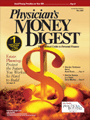Publication
Article
Physician's Money Digest
Determine Your Flavor of Real Happiness
Author(s):
What would be worse than not havingenough money to enjoy your retirement?The answer may surprise you. Howabout having more money than youactually need for retirement. If you put off enjoying lifeby overinvesting your time and money planning for thefuture, you may find that you've wasted the time youhave in the here and now.
Present Contentment
The result:
Happiness is your goal in retirement. Happinessincreases endorphins in your brain, leading to a generalfeeling of pleasure. It increases those all importantendothelial factors such as nitric oxide that keepblood vessels dilated so that they can carry essentialoxygen and nutrient molecules to every part of yourbody. It decreases platelet stickiness, cutting yourchance of a heart attack or stroke. You'rehappy and you're healthy.
Therefore, you strive to accumulate enough moneyto buy these effects. Yes, you can buy happiness, butyou must be a smart purchaser. Since there is no laboratorytest for endorphins or endothelial factors, weeach need to determine for ourselves whether we haveenough by how we feel. For example, do we feel goodor bad about certain expenditures?
Of course, what makes one person happy canmake another person miserable. This is why sometimeswhen you buy something expensive you feelinexplicably unhappy afterward. This is also whywhen you see your next-door neighbor spend a lot ofmoney on something new you ask yourself, "How canthey waste so much money on that?"
Personal Preference
Generally, there are two ways we spend money inan attempt to buy happiness. One way is to buy things(eg, objects or possessions); the other way is to buyexperiences (eg, trips, dinners, and entertainment). Ifit turns out that we're unhappy with our expenditures,it may be because they don't reflect our ownunique needs and desires.
For example, those who treasure experiences cravesomething new, exciting, and interesting—it's an intangible.For those who treasure possessions, owning somethingbeautiful, prestigious, or unique brings personalpleasure. To attain happiness, we need to learn which ofthese two types of expenditures we enjoy. Answer thefollowing questionnaire to find out whether things orexperiences make you a happier person:
Type E: Do you spend all year planning a whitewaterrafting or ski trip?
Type P: Do you spend 3 years planning and remodelingyour home?
Star Wars
Type E: Do you wait in line for the first showing ofthe latest film?
Type P: Do you dote on your garden, whether it's atiny bonsai garden on the balcony of your condo or a40-acre spread?
Type E: Do you love to spend weekends playing cardswith friends or watching the game?
Type P: Do you like to collect things such as coins,porcelain, or art?
If you answered yes to more Type P questions,then nice possessions will likely make you happiest. Ifyou answered yes to more Type E questions, theninteresting and exciting experiences will likely makeyou happiest. If you had trouble answering the questions,it's likely you haven't devoted enough time toeither category's activities.
Before you decide how much money you need tolive on or how much money you need to retire, youneed to determine two factors: what makes you happyand how much money you'll actually need to buy thathappiness. You may need more or you may need less.The bottom line is, before you bid adieu to the workingworld, you need to know.
Louis L. Constan,
a family practice physician in
Saginaw, Mich, is the editor of the Saginaw County
Medical Society Bulletin and Michigan Family
Practice. He welcomes questions or comments at
3350 Shattuck Road, Saginaw, MI 48603; 989-792-1899; or louisconstan@hotmail.com.
